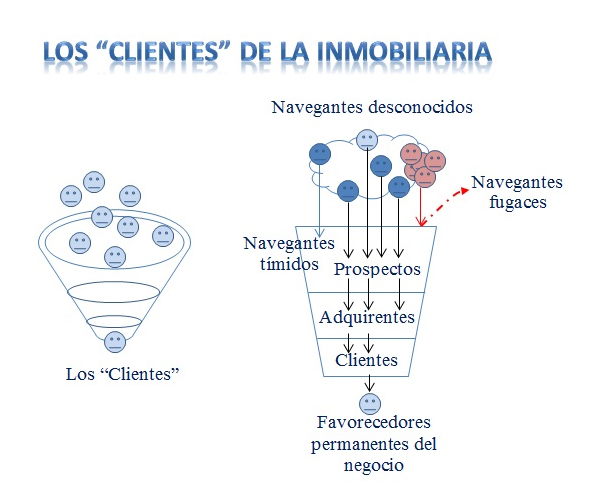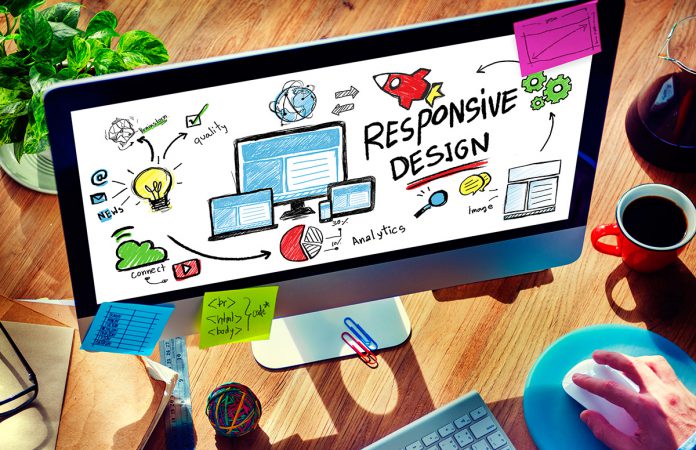What is it for the agency, a real estate client?

It often happens that in our business we usually call clients -with absolute self-confidence- who, really, it is not.
How! ... That we do not know how to call our "clients?
That's it.
Let's see it.
-
Meaning of customer.
If we consult the dictionaries of common use, we will find that by client we mean, in its main meaning, as the person who assiduously uses the services of a professional or company and that only by extension - improper, we add - it is called that who buys in an establishment or uses its services ... sporadically.
Therefore only the one who buys (or uses the services of the agency for a price), and does it repeatedly , we should call him a customer.
And yet or ... with absolute optimism - or recklessness - we usually call clients to all who enter our real estate. To all, buy or not buy, be at the time they are in the process of purchase, or even if they have not finally purchased any product or service that we offer.
Remember that even if you buy our products or services, we should not call you a customer but a buyer or purchaser. I would only be a customer if I bought repeatedly ... and as we know, of those, in Real Estate, there are few cases.
For some time now, in our country -in some areas at least-, the custom has been introduced. to call everyone who is interested in what we do and enters the agency, prospect, and client when you have purchased or acquired any other service. But although this is an improvement over the previous custom, it is insufficient.
-
The process of contacting the "client" with the real estate agency.
Given that the people interested in our agency go through different stages while they are in contact with us, it would be better to indicate their passage through each one with a different name.
p>
At the beginning, outside in the market that surrounds our agency, the possible "clients" walk (physically) or navigate (digitally) by any site that interests them. They are in the phase of concern about their real state and have decided to start looking for "something". (In a subsequent postcard we will see in detail which are the decision phases of a client that is going to buy (change, rent ...) a property.We can refer to them in different ways such as: potentially interested customers, unknown customers -because not yet they have come in contact with us- or real estate agents.In the attached graphic, which is best applied to digital sales, we call them unknown navigators.
Attraction Marketing which we will talk about in another postcard, they get a part of them to fall on our web pages, or to visit us physically, or to write emails or to make any other contact action with us (See attached figure.)

The names of the "clients"
To that class of "clients" we could indicate them better with the name of visitors or fleeting navigators . A part of those navigators, visitors, or interested, attracted by our Marketing actions, or arrived to us by other causes, to our website or office, disappear instantly or after the first non-digital contact. The gurus of Attraction Marketing point out, with some small differences between them, that one in ten people who visit our pages never return.These will be called prospects (or, less fortunately, potential customers).
Some of these prospects will continue to interact with us and some of them will eventually buy our products or services. These will be called properly Buyers or Buyers. (Real estate customers who buy for the first time.)
When these people reiterate the purchase of our products we will call customers themselves.
>These ideas will be seen again when we discuss the funnel ( funnel )
-
This is not so new, it comes from far away.
The traditional wisdom in Sales warns us that - this task of precise identification or terminology we are commenting on - is more than a semantic precision , also pointing out, very clearly, that Real Estate Sales Money is precisely, in the transformation of its real buyers -not potential, not prospects- in clients. (2)
-
The sales funnel hides a transformation process.
Those successive steps that the "client" -the interested party-travels along with us and in which he receives a different name, is sometimes represented with the figure and the concept of the sales funnel. This concept is very old even though it has recently become green in the world of digital marketing. We will also see it later.
But what interests us now is to note that to sell to our "clients" we will have to make several different efforts:
- The first will consist of to attract as many interested parties as possible to our web pages or to our offices. (This is what Attraction Marketing .)
- Once in them, ensure that the established contact remains alive, fresh, the time necessary for the sale to be considered by they. (The Retention Marketing takes care of this.)
- From the Sales Techniques , we will transform the potential prospects or clients they arrive, in real buyers ( Acquirers ).
- And, finally, with the latter and the people in their environment, we will transform them into Customers . This, through appropriate loyalty, - will lead to the subsequent repetition of the purchase. This will be the final phase of the Rational Sale Method that we will show in another place. (Phase 5 of the Method: The use of the Customer Relationship Maintenance Techniques .) Among these will be the obtaining of referrals that will facilitate the repeated sales we intend with these customers who have already purchased once or with those others who know and who recommend us. (3)
One hundred years ago, to these real customers, HN Casson called them permanent promoters of the business , how good the choice of those terms, right ?
Note that what matters of this denomination by stages is that it links the real estate client with the basic task that the agency must perform in each one of them.Elmo Lewis developed a model that described the client's theoretical journey from the moment a brand or product attracts his attention to the point of sale. "The model is known as AIDA . Years later, the concept of associating the sales funnel model with the AIDA concept was first proposed by William W. Townsend in 1924. See: https://en.wikipedia.org/wiki/Purchase_funnel
(3) Currently, the inbound Marketing techniques encompass all those indicated here.
Follow Health !
Miguel Villarroya Martín, October 19, 2015/Madrid. Spain/PyC.002/



